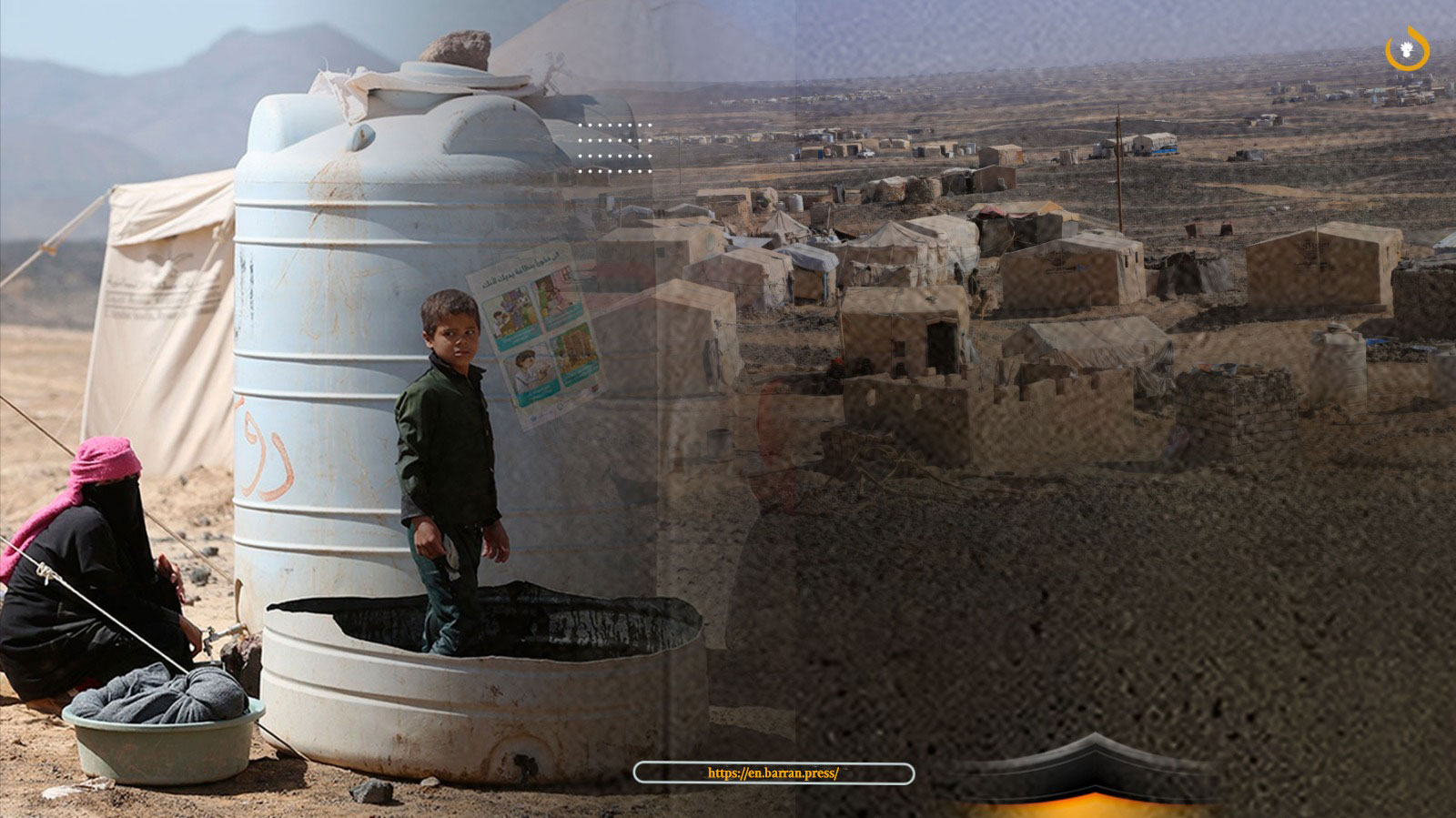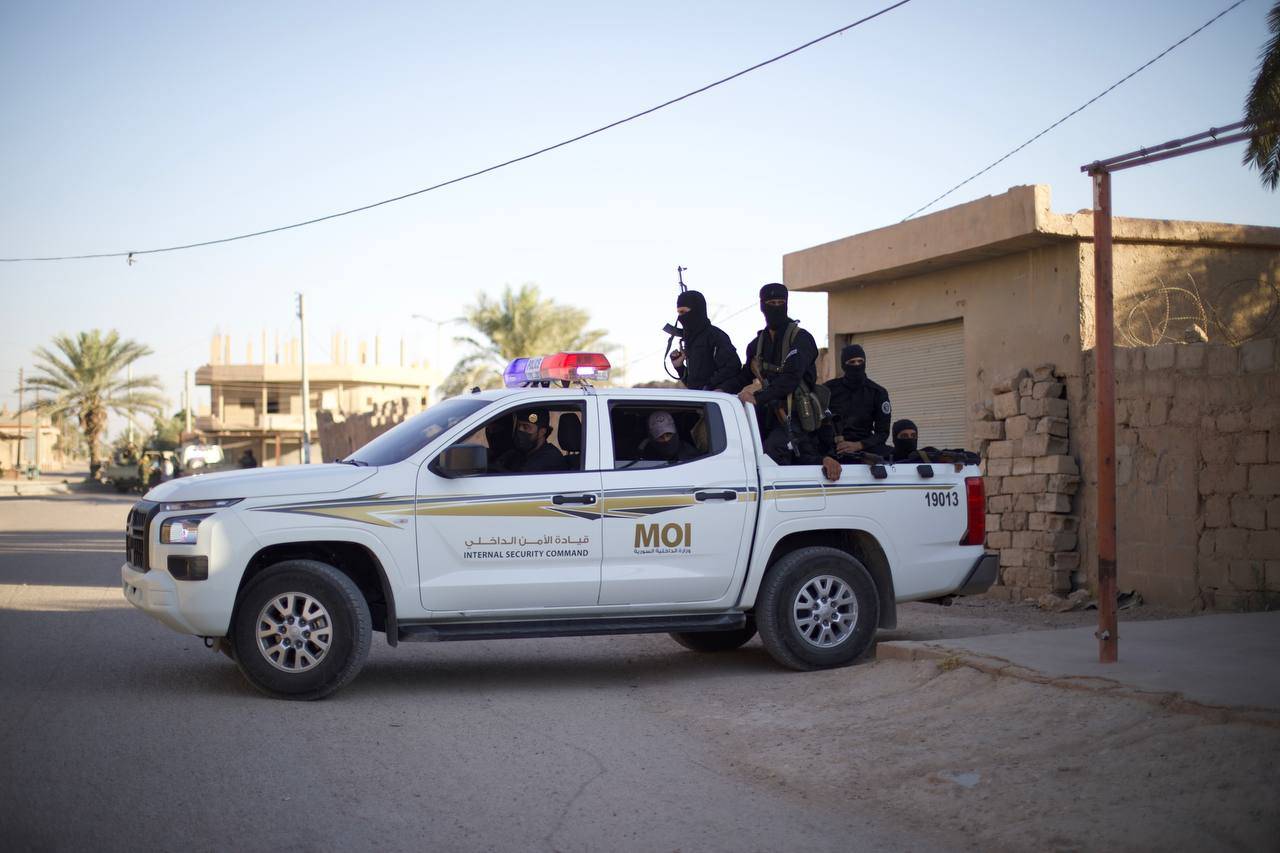
Barran Press
As winter 2024/2025 approaches, over 2 million internally displaced persons (IDPs) in Marib, northeastern Yemen, face severe challenges. According to a recent report by the Executive Unit for IDP Camp Management in Marib, more than 400,000 IDPs live in 208 camps spread across the governorate. Among these, nearly 39,000 families are enduring "overwhelming" conditions in the camps.
The report, obtained by "Baran Press," highlights the dire humanitarian conditions caused by acute shortages of basic resources and inadequate infrastructure. Statistics from the Executive Unit reveal that Marib hosts a total of 299,880 displaced families, amounting to 2,087,573 individuals, with 38,721 families residing in makeshift shelters highly susceptible to frost as winter sets in.
Severe Shortcomings and Grave Consequences
The report underscores that temporary shelters are unable to withstand harsh winter weather, leaving children, the elderly, and the sick at significant risk of severe health complications from extreme cold, often resulting in death. The situation is exacerbated by the use of primitive and unsafe heating methods, with many families resorting to open fires inside their tents to combat the cold, leading to frequent fires and cases of suffocation due to inadequate ventilation.
Repeated incidents in previous years have resulted in tragic loss of life, particularly among the most vulnerable groups, illustrating the grave dangers faced by IDPs during winter.
Delayed Response and Increased Suffering
The winter needs report highlights that the humanitarian situation in the camps is worsening due to significant delays in winter humanitarian responses and a noticeable decline in aid despite increasing needs. This delay makes it difficult for IDPs to access winter clothing, heavy blankets, and safe heating means, in addition to a shortage of energy-rich food to help them endure the winter cold.
The ongoing internal displacement to camps, driven by threats of eviction due to rising rents and the inability of many displaced families to afford living costs, compounds the situation. Reports indicate that delayed humanitarian aid in previous years has been a major cause of death among camp residents, particularly children and the elderly, who suffer from poor resilience and cannot withstand harsh climatic conditions.
With the increasing number of IDPs and decreasing support, the report warns that this situation could lead to an inevitable humanitarian catastrophe if urgent and immediate measures are not taken to alleviate the suffering of the displaced.
Shelter and Protection Needs
The report outlines the need for shelter and non-food items for IDPs, with 64,899 shelters, 64,725 winter kits, 64,725 families needing winter clothing, 28,500 heaters, 7,430 shelter rehabilitations, and 17,355 shelter repairs required.
In Marib City's camps, families need 38,529 shelters, 38,124 winter kits, 4,235 shelter rehabilitations, 9,613 shelter repairs, 16,690 heaters, and 38,124 winter clothing.
In Marib Valley's camps, families need 21,417 shelters, 21,193 winter kits, 2,452 shelter rehabilitations, 6,407 shelter repairs, 9,405 heaters, and 21,193 winter clothing.
In Ragwan district, IDPs need 410 shelters, 913 winter kits, 223 shelter rehabilitations, 400 shelter repairs, 410 heaters, and 410 winter clothing.
For displaced families in Harib district camps, the needs are 543 shelters, 4,495 winter kits, 520 shelter rehabilitations, 935 shelter repairs, 1,995 heaters, and 4,543 winter clothing.
Health and Nutrition
According to the Executive Unit, field assessments show that 125 camps have not received any health services, exacerbating the humanitarian suffering of camp residents, especially children and the elderly, during winter.
Health services provided in the camps include primary healthcare, treatment for malnutrition, and care for pregnant women. The assessments indicate that 22 health centers near IDP sites need support, and 36,564 children suffering from malnutrition require nutritional support.
Water, Sanitation, and Hygiene Challenges
The report highlights that 184 IDP sites lack potable water, with 64 sites not having regular water supply. IDP families need water distribution networks in 140 sites and permanent water sources at 368 points. Additionally, the camps require the drilling of 41 wells, 41 pumps, 63 tower tanks, and water tanks for 46,296 families.
In terms of sanitation, 164 sites need hygiene awareness campaigns, 110 sites need solid waste removal, and 85 sites require sewage water drainage. The camps also need 1,585 garbage containers and 123 waste collection points to help curb the spread of diseases. Personal hygiene is critical, with 57,447 hygiene kits required, and 16,000 families need toilets. People with special needs require 7,480 specially equipped toilets.
Food Security Needs
The report also discusses increased suffering due to the inability to purchase food and weak humanitarian responses. Surveys reveal that 87,447 families need food assistance, with 24,445 of them in urgent need of immediate food coverage. There are high indicators of severe malnutrition among children in 45 camps.
Additionally, 22,118 IDP families rely on daily wages for their livelihood, struggling to provide basic needs amidst economic decline. The lack of dietary diversity is severe, with all camps showing significant issues. Cash-for-food assistance and emergency food aid have only covered 3% of the gap, necessitating urgent interventions to meet the needs of IDPs in camps and homes.
Vulnerabilities During Winter
Winter is particularly harsh on vulnerable groups, including 8,021 mobility-impaired individuals, 9,232 elderly over 60, 19,715 pregnant and lactating women, 10,715 chronically ill individuals, 3,111 children as heads of families, 1,295 unaccompanied children, 9,524 mentally or intellectually disabled individuals, and 5,110 women-headed households.
The report emphasizes that winter exacerbates their suffering, with many lacking the basic necessities for heating. A significant number suffer from malnutrition, further worsening their health conditions, particularly with the increased demands of winter and lack of healthcare services in most camps.
Immediate Humanitarian Intervention Needed
The Executive Unit stresses the need for immediate and comprehensive humanitarian intervention by international and local organizations and donors. This intervention should focus on improving temporary shelters, providing safe and effective heating means, distributing winter clothing and heavy blankets, and ensuring access to energy-rich food.
Improving healthcare services in the camps is also crucial to combat winter diseases, such as respiratory infections, by supporting health centers with medicines and medical staff, and providing health awareness campaigns for IDPs. Strengthening infrastructure within camps is essential to reduce health risks and ensure a safer environment.
Providing a dignified and safe life for IDPs during winter is an urgent humanitarian responsibility that requires coordinated and immediate action from all relevant stakeholders, including international organizations, donors, and local institutions.





